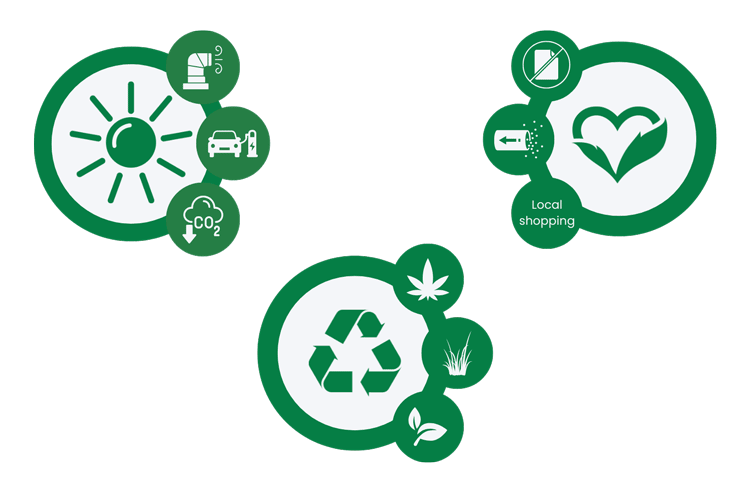
From Excess to Ethics
The last decade has seen an immense increase in awareness for environmental issues. One of the major problems the planet is facing is the way of consumption practiced in Western societies. Many people live according to the motto: more is more. Therefore, they purchase goods they don’t need, produced under horrific circumstances, shipped across the globe. Changing this kind of consumerism can have a significant impact on the well-being of our planet and is thus, a large part of the solution to a number of environmental problems.
Farm shops are a form of retailing that takes a step towards changing consumer behaviours in the food industry. The concept usually includes locally and ethically produced goods. These are then sold either directly on the premises of the farms or taken to regional markets. Thus, the idea of a farm shop tackles many of the problems connected to consumer behaviours and is therefore becoming increasingly popular (feedforgrowth.com).
From Farm to Table: The Benefits of Supporting Local Retailers
Autonomous retailers are up against serious competition in the food industry. Big chains have the advantage of being established in the minds of people as well as being able to offer low prices. However, consumers are now more willing than ever to support local retailers rather than large supermarket chains. The reasons for this are manyfold.
One of the major benefits of shopping at your local farm shop or farmers market is the reduction of food miles – the distance that food travels from the location it is grown to the location it is consumed. Of course, fewer food miles also mean less emission of green house gases. Therefore, by supporting local retailers you also support a sustainable handling of earth’s resources. In addition to that, such farms often practice organically certified farming techniques, further improving their ecological footprint (evergreen.ca).

The reduction of food miles also improves the products’ quality. Vitamins and minerals contained in fruit and vegetables begin to degrade right after they have been picked. Which means reducing the time that passes between harvesting and consuming the fresh products, significantly benefits their quality.
Another issue of modern consumerism is the immense amount of waste that is produced every day. Since farm shops operate on a much smaller level than large supermarket chains, they can better approximate the ratio of supply and demand. This helps them avoid excess waste both in terms of foodstuff as well as plastic packaging, since many farm shops sell their products using environmentally friendly alternatives (e.g. reusable containers and bags) (ibid).
Benefits
For farmers:
Better prices: Taking supermarkets that want provision out of the equation makes sure that farmers can charge much fairer prices for their goods
Connection: The immediate interaction with people from their local community, establishes a more personal relationship between farmers and their clientele
Education: This interaction also enables farmers to use this personal exchange with people to educate them about your line of work and what it means to be a farmer, possibly inspiring future generations to follow in their footsteps.
Awareness: Create more awareness about the processes and the hard work that goes into the production of every-day food
For consumers:
Certainty: Shopping at local farmers markets or farm shops means that you can be sure about your food’s origins and circumstances under which it has been produced
Think green: By shopping locally, you support a more ecological way of farming and consuming; thus, having a positive impact on environmental issues while enjoying high-quality foodstuffs
Connection: When you engage with and support your local producers, you strengthen your local community
Information: The personal contact to the farmers who produce your food, can teach you something about the products you use everyday – and learning something new is never a bad thing
Conclusion
All being said, farm shops – and local retailers in general – contribute enormously to a more sustainable consumer behaviour. With fewer food miles, better farming practices, and reduced waste the overall ecological footprint of the food industry can be vitally improved. The same goes for consumers, who decide to shop accordingly. So, if you would like to have a positive effect on the environment and enjoy high-quality food, you should start supporting your local farm shops and markets.
Sources:
evergreen.ca. “3 Environmental Benefits of Shopping at Your Local Farmers Market.” Evergreen, 17 Apr. 2024, www.evergreen.ca/stories/3-environmental-benefits-of-shopping-at-your-local-farmers-market.
Feed For Growth, 19 Apr. 2021, feedforgrowth.com/articles/view,farm-shops-a-winwin-for-all_37.htm.



